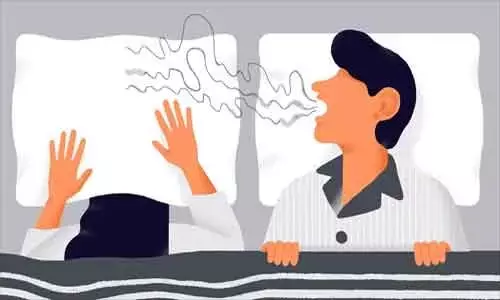- Home
- Medical news & Guidelines
- Anesthesiology
- Cardiology and CTVS
- Critical Care
- Dentistry
- Dermatology
- Diabetes and Endocrinology
- ENT
- Gastroenterology
- Medicine
- Nephrology
- Neurology
- Obstretics-Gynaecology
- Oncology
- Ophthalmology
- Orthopaedics
- Pediatrics-Neonatology
- Psychiatry
- Pulmonology
- Radiology
- Surgery
- Urology
- Laboratory Medicine
- Diet
- Nursing
- Paramedical
- Physiotherapy
- Health news
- Fact Check
- Bone Health Fact Check
- Brain Health Fact Check
- Cancer Related Fact Check
- Child Care Fact Check
- Dental and oral health fact check
- Diabetes and metabolic health fact check
- Diet and Nutrition Fact Check
- Eye and ENT Care Fact Check
- Fitness fact check
- Gut health fact check
- Heart health fact check
- Kidney health fact check
- Medical education fact check
- Men's health fact check
- Respiratory fact check
- Skin and hair care fact check
- Vaccine and Immunization fact check
- Women's health fact check
- AYUSH
- State News
- Andaman and Nicobar Islands
- Andhra Pradesh
- Arunachal Pradesh
- Assam
- Bihar
- Chandigarh
- Chattisgarh
- Dadra and Nagar Haveli
- Daman and Diu
- Delhi
- Goa
- Gujarat
- Haryana
- Himachal Pradesh
- Jammu & Kashmir
- Jharkhand
- Karnataka
- Kerala
- Ladakh
- Lakshadweep
- Madhya Pradesh
- Maharashtra
- Manipur
- Meghalaya
- Mizoram
- Nagaland
- Odisha
- Puducherry
- Punjab
- Rajasthan
- Sikkim
- Tamil Nadu
- Telangana
- Tripura
- Uttar Pradesh
- Uttrakhand
- West Bengal
- Medical Education
- Industry
AASM recommends tips to stop snoring

Snoring is the hoarse or harsh sound that occurs when air flows past relaxed tissues in the throat, causing the tissues to vibrate as one breathes. It is a very common issue but becomes a problem when it becomes chronic and a nuisance to the partner. Also at times, it may also indicate a serious health condition. Snoring is often associated with a sleep disorder called obstructive sleep apnea (OSA)which is characterized by loud snoring followed by periods of silence when breathing stops or nearly stops. But, not all snorers have obstructive sleep apnea.
"While snoring is disruptive to bed partners and can cause frustration in a relationship, it can also be an indicator of a serious health problem," said Dr Kelly A. Carden, president of the American Academy of Sleep Medicine. "Snoring is a common symptom of obstructive sleep apnea, a chronic disease that involves the repeated collapse of the upper airway during sleep. When sleep apnea is untreated, it can increase the risk of heart disease, high blood pressure, Type 2 diabetes, stroke, and other health problems."
The AASM recommends the following tips for occasional snorers:
Weight loss: Weight gain can make snoring worse and may even lead to obstructive sleep apnea. Shedding pounds can help reduce or eliminate snoring for some people, and weight loss should be a top priority if you are overweight or obese.
Positional therapy: For some, snoring mostly occurs while sleeping on the back. To reduce snoring, try changing positions by sleeping on your side.
Avoid alcohol, muscle relaxants, and certain medications: These substances can relax your throat or tongue muscles, causing you to snore.
Medical diagnosis: If snoring is loud and frequent, talk to a medical provider about your risk for obstructive sleep apnea or seek help from the sleep team at an AASM-accredited sleep centre.
To learn more about sleep apnea, visit SleepEducation.org.
Hina Zahid Joined Medical Dialogue in 2017 with a passion to work as a Reporter. She coordinates with various national and international journals and association and covers all the stories related to Medical guidelines, Medical Journals, rare medical surgeries as well as all the updates in the medical field. Email: editorial@medicaldialogues.in. Contact no. 011-43720751
Dr Kamal Kant Kohli-MBBS, DTCD- a chest specialist with more than 30 years of practice and a flair for writing clinical articles, Dr Kamal Kant Kohli joined Medical Dialogues as a Chief Editor of Medical News. Besides writing articles, as an editor, he proofreads and verifies all the medical content published on Medical Dialogues including those coming from journals, studies,medical conferences,guidelines etc. Email: drkohli@medicaldialogues.in. Contact no. 011-43720751


